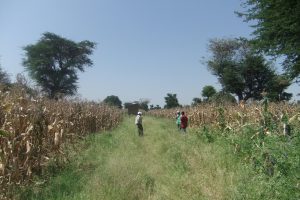New Journal Article by Getaw Tadesse, Gashaw T. Abate and Tadiwos Zewdie.
Abstract: Measuring the incidence and intensity of food insecurity has long been a challenge due to its conceptual and practical complexity. Several scholars have proposed objective and subjective measurements to monitor or evaluate food in(security) programs. While the objective measurements such as food caloric intake and food expenditure are data demanding and costly, the subjective measurements such as experience-based food insecurity scales that use direct responses to food shortage questions can be prone to biases and misreporting due to respondents’ unobservable economic and social desirability concerns. This paper reports the biases when food shortage is asked through direct questions and indirect interviews using a list experiment approach—an approach widely used to elicit the true responses of respondents for a sensitive question. The list experiment was conducted on four selected self-reported food insecurity survey questions which represent both the availability (incidence) and access (intensity) dimensions of food security. The sample households were drawn from two districts in Northern Ethiopia where households are chronically food insecure and several projects have been implemented. The results indicate the existence of significant bias in self-reported food insecurity responses when implemented through direct interviews. The results also show that the biases, particularly the ones related to incidence questions, have led to erroneous conclusion about the impact of a food security program—the Ethiopian Household Asset Building (HAB) program. Based on the findings, the paper highlights possible options and precautionary actions for measuring food insecurity using self-reported questions. Read more.
